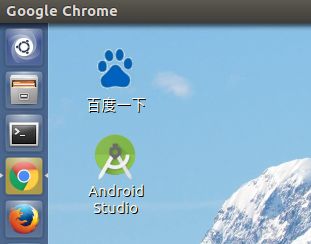1.Desktop Entry文件
在windows操作系统里,打开程序可以通过点桌面上的快捷方式文件打开。在Linux系统上,程序的打开快捷方式文件是由Desktop Entry文件来描述的,它描述了程序的启动配置信息。Desktop Entry文件标准是由FreeDesktop.org(http://freedesktop.org/wiki/)制定的,目前最新的版本是Version 1.2alpha。我们用1.0就好了。Desktop Entry文件以".desktop"为后缀名。这些Desktop Entry文件通常会放在/usr/share/applications/或/opt/gnome/share/applications/等目录下,但其实放哪里都可以。用户打开应用程序浏览器后会看见很多应用程序快捷方式,每个快捷方式都和一个Desktop Entry文件相对应。点击相应Desktop Entry文件同样可以启动相对应的应用程序。一个DesktopEntry文件的样子大概如下:
[Desktop Entry]
Version = 1.0
Encoding = UTF-8
Name = Quick Start Tour
GenericName = User Tutorial
Comment = help you learn how to use the Desktop
Exec = gnome-open
/usr/share/doc/manual/sled-gnome-cbt_en/index.html
Icon = cbt
StartupNotify = true
Terminal = false
Type = Application
Categories = GNOME;Application;Documentation;
OnlyShowIn = GNOME;
X-SUSE-translate = true
Name[cs] = Rychlá prohlídka systému
Comment[cs] = V?ukov? program seznamující
u?ivatele se základy pracovního prost?edí
GenericName[cs] = U?ivatelsk? tutoriál
Name[hu] = Rendszerbemutató
Comment[hu] = A munkaállomés használatát
bemutató segédlet
GenericName[hu] = Felhasználói segédlet
2.Desktop Entry文件结构
Desktop Entry文件以字符串"[Desktop Entry]"开始。Desktop Entry文件的内容是由若干“key=value”的键值对组成的。key分为必选和可选两种:必选的必须在.desktop文件中被定义;而可选则不必。下面是关于一些重要关键字的说明:
Version:可选,指定了当前Desktop Entry文件所遵循的Desktop Entry文件标准版本。
Name:必选,指定了快捷方式显示的名称。
Icon:[可选]指定义了快捷方式所使用的图标。
Icon如果指定的图标是以绝对路径的格式给出,那么所指定图标文件将被使用;如果只给出了图标的名称,那么Linux系统将使用"IconTheme Specification",也就说从系统指定的主题下去找这个图标,这些主题的图标放在/usr/share/icons的对应的主题下,如果系统没有指定主题,那么就会加载hicolor主题下的图标。原文是这样说的:
The name of the theme that this theme inherits from. If an icon name is not found in the current theme, it is searched for in the inherited theme (and recursively in all the inherited themes).If no theme is specified implementations are required to add the"hicolor" theme to the inheritance tree. An implementation may optionally add other default themes in between the last specified theme and the hicolor theme.
参考:https://specifications.freedesktop.org/icon-theme-spec/icon-theme-spec-0.9.html
GenericName:[可选]指定了应用程序的通用名称。如果程序名系:谷歌浏览器,那么这个通用的名称可以系:浏览器。有些分类的意思。
Comment:[可选]对当前快捷方式对应的程序的简单描述。
Type:[必选]指定了Desktop Entry文件的类型。数值可以是"Application"或"Link"。"Type= Application"表示当前Desktop Entry文件指向了一个应用程序;而"Type = Link"表示当前Desktop Entry文件指向了一个URL。
Exec:[可选]只有在"Type"类型是"Application"时才有意义。定义了启动指定应用程序所要执行的命令,在此命令是可以带参数的。所执行的命令在shell中输入并按回车键同样可以启动指定应用程序。
URL:[可选]只有在"Type"类型是"Link"时才有意义。"URL"的数值定义了该Desktop
Entry文件指向的URL。
StartupNotify:[可选]值只能是true或false,只有在"Type"类型是"Application"时才有意义。用于跟踪程序的启动。参考:https://www.freedesktop.org/wiki/Specifications/startup-notification-spec/
Terminal:[可选]数值也是布尔值,只有在"Type"类型是"Application"时才有意义。指出将要运行的程序是否需要在终端窗口中运行
Categories:[可选]只有在"Type"类型是"Application"时才有意义。指出了将要运行的程序在菜单中显示的类别。参考:https://specifications.freedesktop.org/menu-spec/menu-spec-1.0.html
在关键字后加上字符串"[LOCALE]"就可以对该关键字进行特定的本地化定义,也就是说根据系统所选的语言去选用相应的键值。"LOCALE"的合法取值为:
LOCALE= lang_COUNTRY.ENCODING@MODIFIER
在此,域"_COUNTRY",".ENCODING"和"@MODIFIER"是可以被忽略的。当指定Desktop
Entry文件被解析时,解析器应当根据当前POSIX
locale来正确获取本地化的关键字数值。如前就分别定义了在"cs"和"hu"语言环境下关键字"Name","Comment"和"GenericName"的不同值。
下载创建几个小实例:
如在桌面创建打开百度的快捷方式,我准备了一个baidu.png图标:
[Desktop
Entry]
Version=1.0
Name=百度一下
Icon=/home/won/Icons/baidu.png
Type=Link
URL=http://www.baidu.com
把这个文件件放在桌面,一点击,就打开百度了。
再来一个打开androidstudio IDE的:
[Desktop
Entry]
Version=1.0
Name=Android
Studio
Icon=/home/won/Icons/studio.png
Type=Application
Exec=/home/won/Software/android-studio/bin/studio.sh
效果如下:
